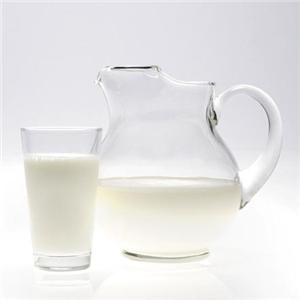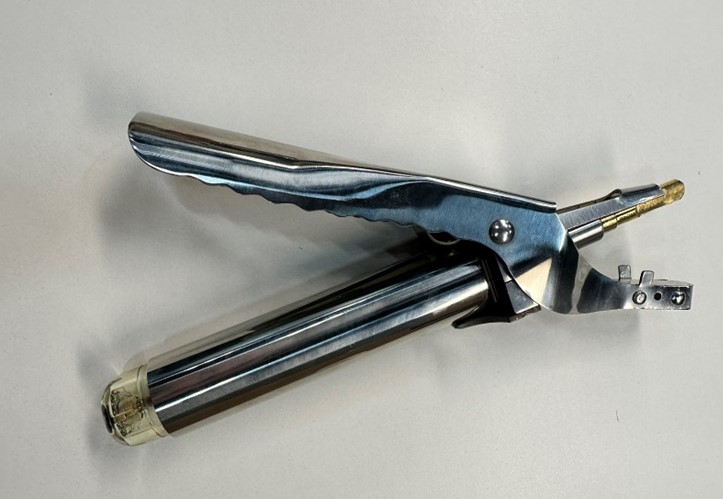The targets for the growth of agricultural production and agricultural exports have been exceeded. Last year, Russian agricultural exports exceeded imports for the first time.

Last year, the growth rates of agricultural production, exports and production of value-added products were higher than planned. The Minister of Agriculture Dmitry Patrushev said this at a government meeting, presenting the National Report on the implementation of the state program for the development of agriculture in 2020, the press service of the department reported. According to him, the index of agricultural production in all farms against the base year 2017 was 105.7% against the plan of 103.8%. This result is made up, among other things, of the index of crop production, which in 2020 is estimated at 106.1% - 3.7 percentage points above the plan, the press service of the Ministry of Agriculture noted.
Patrushev recalled that Russian farmers received one of the best grain crops - 133.5 million tons, including 85.9 million tons of wheat. According to the basic forecast of the agricultural department, grain harvest in 2021 may reach 127 million tons, including 81 million tons of wheat. For individual crops, records were set last year, for example, for rice, rapeseed, fruits and greenhouse vegetables. An increase in indicators was also ensured in various areas of animal husbandry - in the production of MILK, livestock and poultry, the Ministry of Agriculture said in a statement. Now the dynamics in this sector is positive, in 2021 the ministry expects to meet the target indicators. In addition, compared to the level of 2017, the food production index last year was 111.7%, which is 2.1 percentage points higher than the plan, and the beverage production index reached 108%.
Patrushev also said that last year, Russian exports of agricultural products for the first time exceeded imports: more than $30.5 billion worth of agricultural products were supplied to foreign markets. The growth rate of exports in 2020 compared to the base 2017 exceeded 141%, which is more than planned values by 22 p.p. “Thus, the second key goal of the state program has been fulfilled,” the HEAD of the Ministry of Agriculture emphasized. The added value of agricultural products last year almost reached 3.5 trillion rubles. with a plan of 3.2 trillion rubles.
For 2021, the plan for the EXPORT of agricultural products is $28 billion, while the ministry previously predicted that exports could be at the level of $30 billion. During the final Board of the Ministry of Agriculture, Patrushev noted that RUSSIA should increase the export of high value-added products. Last year, its share in the supply structure amounted to 15%. “Increasing export potential is evidence of the sustainable growth of the agro-industrial complex as a whole. In the 1990s, Russia even imported grain, the minister recalled. — Now grains are the main export item. The success of agrarians and the support of the state allow us to systematically change the vector exclusively from grain exports, strengthening other areas.”
During the meeting, Prime Minister Mikhail Mishustin stressed that it is necessary to continue work on creating a competitive and high-tech agricultural complex. “The top priority is food security. We are talking about providing a wide selection of high-quality domestic products at affordable prices,” the head of the Cabinet said. A lot has already been done for successful import substitution in this area. We fully provide ourselves with grain, vegetable oil, SUGAR, MEAT and fish. Not so fast, but quite confidently, milk production is growing.” Although Russian agricultural products are in high demand abroad, it is now more important to provide consumers with the necessary food in the domestic market, Mishustin added.
Mishustin announced the launch of a digital service for farmers to receive state support
“The achievement of the goals of the state program in the current year and in the future will be facilitated, among other things, by the digitalization of the agro-industrial complex, a general increase in the technological level of our industry, and the involvement of agricultural land in circulation. Also, of course, in dialogue with farmers and regions, we will continue to improve the system of state support,” Patrushev concluded.
Read together with it:
- An HSE expert reported on the "evolution of inequality" in access to healthcare.An HSE researcher analyzed Russians' access to healthcare over a ten-year period. In 2021, the influence of financial factors became noticeable for the first time: low income reduces the likelihood of visiting a DOCTOR.Over the ten years from 2011 to 2021, the number of Russians requiring medical care but not receiving it remained virtually unchanged, according to a study by Lyudmila Zasimova, hea...
- The IEA sees a risk of a decline in oil production in Russia due to sanctions.The IEA sees a risk of reduced oil production in RUSSIA due to US sanctions , but maintains its production forecast. According to the IEA, Russian oil exports will remain unchanged.There is a "significant downside risk" to Russia's oil production forecast due to US sanctions, the International Energy Agency (IEA) said in a report.BLOOMBERG . The agency's experts believe that the latest US sanction...
- "Коллективы АПК способны решать любые задачи даже в непростых условиях". Назаров о заслугах сельхозпроизводителейЮрий Назаров 13 ноября, Минск. Обеспечение продовольственной безопасности страны - большое достижение трудовых коллективов аграриев, отметил управляющий делами Президента Республики Беларусь Юрий Назаров на торжественной церемонии награждения государственными и иными наградами работников АПК Управления делами Президента Республики Беларусь, передает корреспондент БЕЛТА. Торжественная церемония наг...
- Министр сельского хозяйства предлагает долгосрочные контракты для стабилизации цен на продуктыЛут подчеркнула, что за последние десять лет рост цен на основные продукты в России не превысил общий уровень инфляции, а в некоторых категориях даже отстает от нее. Тем не менее, наблюдается устойчивый рост себестоимости продукции из-за увеличения цен на технику, энергоресурсы и логистику. Для контроля ценовой ситуации министерство сотрудничает с депутатами и рядом других ведомств. Также она упом...
- Russian agriculture: self-sufficiency continues to growThe industry has a track record of implementing new technologies and increasing productivity. RUSSIA is already confidently self-sufficient in grain, MEAT, fish, vegetable oil, and SUGAR. Grain and vegetable production is also forecast to be higher this year, despite unfavorable weather conditions in some regions. The Ministry expects historic highs for some crops and continues to support agricult...
- Sustainable growth of the food and processing industries in BashkortostanIlshat Fazrakhmanov, Deputy Prime Minister andThe regional Minister of Agriculture noted that the development of these industries provides the population with essential food products and contributes to increased exports. Since 2020, agricultural exports from the region have doubled. Since the beginning of 2......
- В Тульской области уничтожили 24 кг санкционных сыров и мясных продуктов из ЕвропыВо время совместной проверки с транспортной прокуратурой из оборота было изъято 24,45 кг сыров и мясных изделий, произведенных в таких странах, как Дания, Испания, Норвегия, Италия, Ирландия и Франция. Ввоз данной продукции на территорию России запрещен в соответствии с указом Президента, касающимся специальных экономических мер. Изъятая продукция была ликвидирована путем измельчения и денатурации...
- Rosselkhoznadzor has banned meat imports from two Belarusian enterprises due to violations.In addition, three other Belarusian producers are now subject to strict laboratory monitoring due to initial deviations: azithromycin was found in poultry MEAT from Druzhba Poultry Farm, and the pesticide imidacloprid was found in honey from Pchalyar Polachchyny Farm. Powdered MILK from Luninetsky Dairy Plant was also found to containcoli bacteria . These measures were taken at the request of the ...



























































